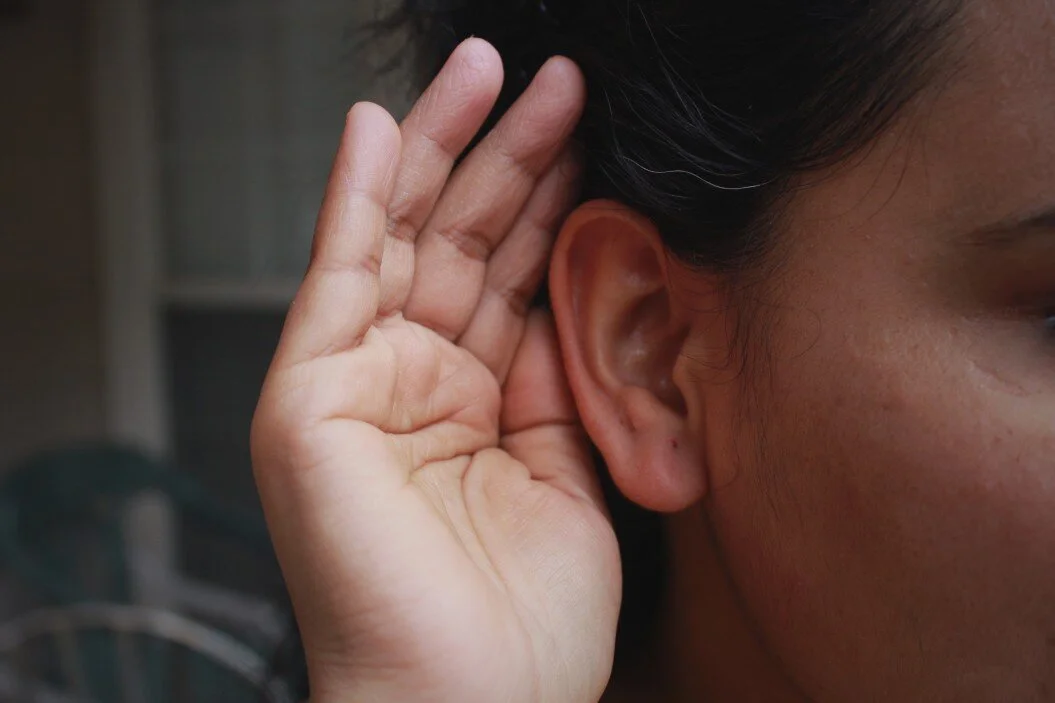How to Improve Your Listening Skills in Intimate Relationships
(3min)
How do you know whether you’re a good listener or not? Let’s take a quick survey:
When engaged in a conversation, are you the type of person who:
Lets your emotions swell to the point that you’re thinking of what to say next while your boo is talking
Daydreams about what happened during the day or your grocery list
Shows impatience in your body language
Jumps to premature conclusions
Interrupts your boo in the middle of a sentence
Periodically checks their device
If you answered yes to any of these points then you’re probably a Passive Listener. This type of listening typically shows up when you’re watching TV, listening to a lecture or podcast. However, it’s not a good tactic if you want to be empathetic or when you’re trying to build deep emotional bonds in your intimate relationships. I’m sure you’ve been on the receiving end of someone pretending to listen to you and when you check in for feedback, (they make a comment that shows they weren’t paying attention to you) they ask you a question that you answered a moment ago. It’s irritating because it makes you feel devalued.
In this article we’re going to discuss the tenets of Active Listening and things you can do to practice this listening style.
What is Active Listening?
Active Listening occurs when you are fully present during a conversation. This means you are focusing intently on your boo and you’re able to engage meaningfully in the conversation. When you become proficient at this skill you’ll begin to notice it’s easier for you to build and maintain relationships, solve problems, and remember important facts about the conversation.
Benefits to Active Listening
PostivePsychology.com states, “one of the easiest ways to increase our well-being is via listening—actually listening”. The site further expands on how as humans we are social creatures. And since “social relationships are vital for a happy and fulfilling life, and a vital element of social interaction is good conversation, then we are lost without the skills of active listening.” Consequently, active listening is a skillset we need to learn and practice to ensure our personal well-being.
Active listening also helps you build trust. If your boo can speak to you freely without the fear of being interrupted or judged it validates them and makes them want to open up more.
5 Ways to Practice Active Listening
The great thing about Active Listening is it’s a learnable skill, which means anyone can develop it.
Show verbal and non-verbal clues while listening. This may look like a gentle head nod or checking in with you boo to ensure you understand what they’re saying.
Don’t Interrupt. I know this is going to be difficult but with enough practice it’ll be easier. Over time you’ll also discover the perfect time to interject your thoughts. This usually occurs when there is a natural break in the conversation. Remember you are the audience and your boo is the main event. Especially if they started the conversation.
Make Eye Contact. Making eye contact with your boo immediately gives them the impression that you are present and listening.
Ask Questions. Ask questions to ensure you understand what your boo is trying to convey. Refrain from questions that derail the conversation or put the focus on you.
Pay attention to non-verbal clues. You’re boo’s body language is a great indicator of how the conversation is affecting them. You may notice they’re distressed, which could mean they may need a hug or a word of encouragement.
Remember, if you’re you and you boo aren’t having fun, you’re not doing right. We’d love to be part of you and your boo’s journey. Check out our other blog posts and follow us on Instagram @wooeternal.

